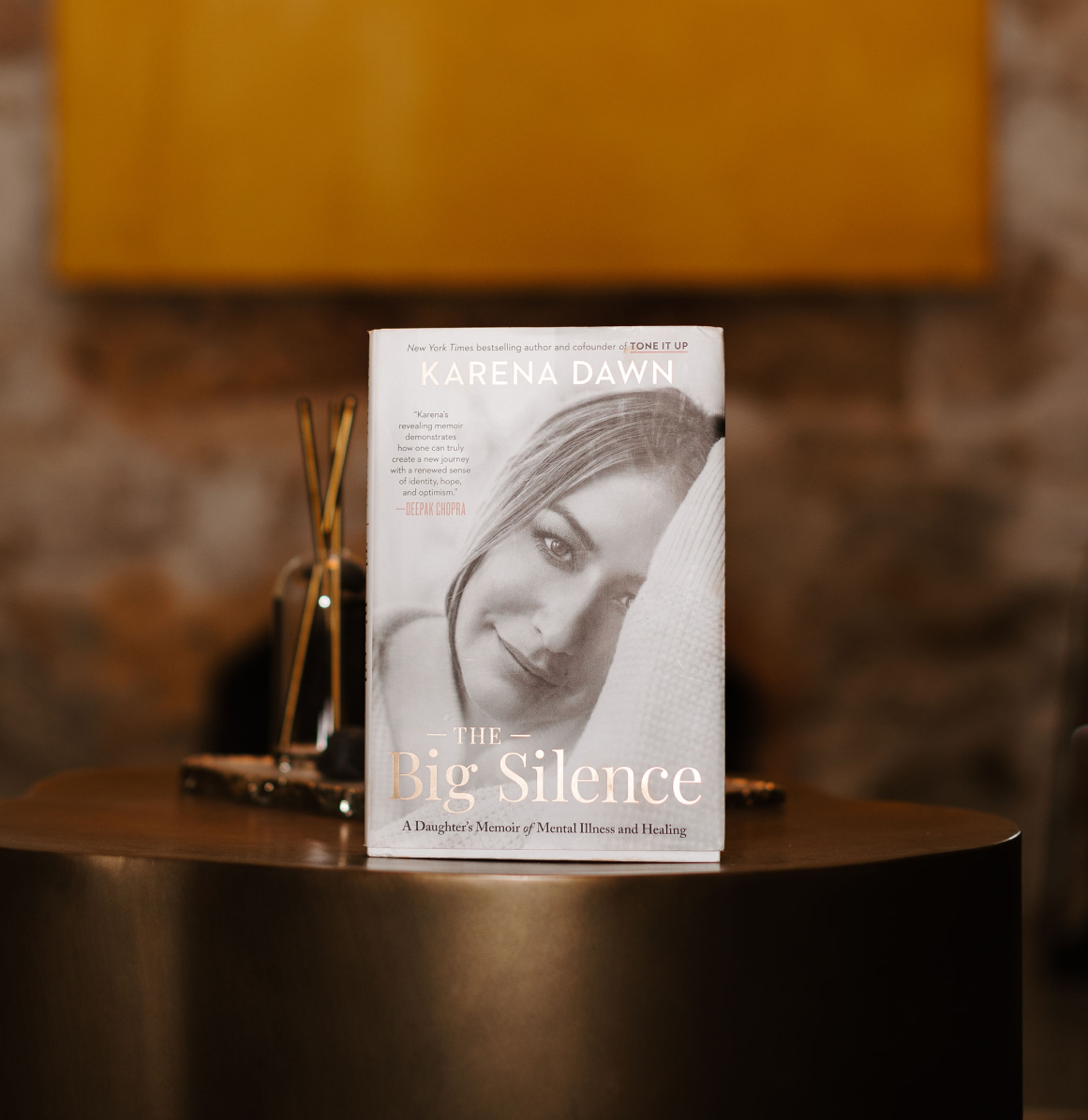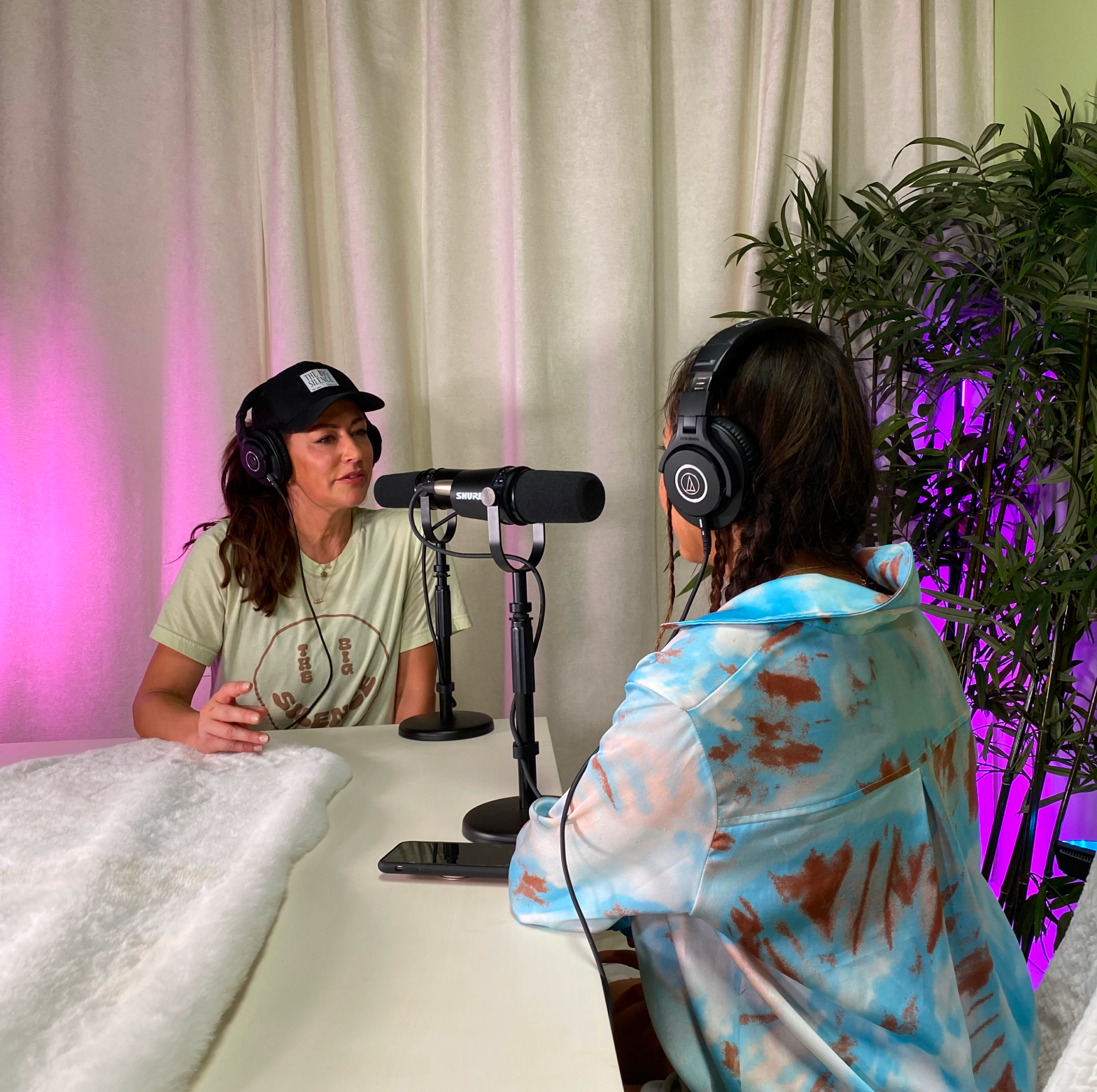
The Transformative Power of Physical Activity on Mood, Energy Levels, and Mental Health
Welcome back to Big Feels Monday, a weekly series by The Big Silence where we talk about how we’re feeling, and bring up tools and inspiration to help start the week off.
It's easy to dismiss exercise as just a means to lose weight or build muscle, but its benefits extend far beyond physical appearance. Let's dive into why physical fitness and moving your body can be a game-changer for mental health, and how to incorporate exercise into your routine even when you're feeling low.
Today on Big Feels Monday, Karena and James delve into the transformative power of regular physical activity on mood, energy levels, and mental health. Karena shares her personal story of how and why fitness has become an essential tool in her mental health toolbox. Discover why going for a run or hitting the gym can turn a bad day around and how to stay motivated even on the "off" days. Karena also provides practical tips on how to motivate yourself to movement when things are tough and you need a boost.
Key takeaways:
- Exercise can be a powerful tool for managing mental health.
- Even a short workout can make a difference.
- There are many ways to incorporate physical activity into your life.
- Finding an activity you enjoy is key to staying motivated.
- Finding an accountability buddy helps you stay committed and motivated.
Who would benefit from watching:
- Anyone interested in improving their mental health
- People who are struggling with low mood or energy levels
- Individuals looking for ways to stay motivated to exercise
- Fitness enthusiasts who want to learn more about the mental health benefits of exercise
Building Self Trust Helps Improve My Mental Health
Melissa Alcantara (AKA FitGurlMel) shares about how her physical fitness routine and exercise are a method to help her to build up self-trust. Building self trust can help to increase your self-esteem, which has benefits for your overall mental health.
A Trainer Helps to Keep Me Motivated and Gives Me a Boost of Good Feels!
Karena shares that a trainer is a great accountability buddy, but even more, too. "When you're with your trainer you are moving your body, getting the endorphins going, and you are opening up and sharing something of yourself with that person. They're like your therapist and your friend."
Finding Exercise Pulled Me Out of Situational Depression
Last week on The Big Silence podcast, Jenna Willis (Vanderpump Rules) shared with Karena the symptoms she experienced during her situational depression. The lack of motivation, the dark place, and the loss of her sense of purpose left her wanting to stay in at home in her blanket. It was at the gym that she found herself feeling a more positive mindset, and making other people feel better, too.
Meeting Fitness Challenges Led Me to Want to Do More for Myself and Helped Me to Feel Good
In conversation with Olympian Trey Hardee, Karena and Trey discuss their experiences of how setting challenging goals in fitness led to mental gains. Crossing that finish line brought momentum to feel better, Karena shares:
“In my Triathlon days, when I was coming out of my deep depression, and I just set a goal to cross the finish line. That feeling the first time I crossed a Finish Line, crying tears of joy, like, ‘I just did something awesome, yeah!’ I challenged myself and now I know that I can do something more, and more, and greater, greater, and greater. I can accomplish anything now”
Trey Hardee shares that it was the mentors and coaches around that helped him reset mentally and physically and meet the challenges of the world's biggest athletic competitions.
The Science Behind Exercise and Mental Health
Studies have shown a strong correlation between physical fitness and improved mental health. Exercise and physical activity can offer help for numerous mental health conditions.There is even evidence that increased physical activity can help to lessen the severity of psychotic symptoms of mental illnesses such as schizophrenia.
Here are some key reasons why exercise can positively impact our minds:
- Endorphin Release: Exercise triggers the release of endorphins, often referred to as "feel-good" hormones. These chemicals interact with receptors in the brain to reduce pain perception and boost mood.
- Reduced Stress and Anxiety: Physical activity helps lower levels of cortisol, the body's stress hormone. Regular exercise can alleviate symptoms of anxiety and promote relaxation.
- Improved Sleep: Quality sleep is crucial for mental health. Exercise can regulate sleep patterns, making it easier to fall asleep and stay asleep.
- Enhanced Self-Esteem: Achieving fitness goals or simply engaging in physical activity can boost self-confidence and self-esteem.
- Distraction and Mindfulness: Exercise provides a healthy distraction from negative thoughts. It can also promote mindfulness, helping us stay present in the moment.
Tips for Getting Active When Feeling Low
"The mind can't heal the mind. I give movement a try," Kris Carr shares how she heals her mind with movement and mirror work.
Getting out there, being active, or starting with a new exercise routine can be daunting when you're feeling depressed or low. These tips can help you get moving! Remember it’s OK to go slow and be patient with yourself.
Start Small
Begin with manageable activities. A short walk around your neighborhood or even just to the end of the block if that's what you can manage, a gentle yoga session, or a brief stretching routine can be a good starting point. YouTube might be a good place to find a short uplifting workout (check out Walk At Home) that can give you a mental boost.
Find What You Enjoy
Choose activities that you genuinely enjoy. Whether it's dancing, swimming, cycling, hiking, weightlifting, boxing, or kayaking, engaging in activities you like increases the likelihood of sticking with them.
Set Realistic Goals
Set achievable goals that are specific and measurable. For example, aim to walk for 10 minutes daily or do a beginner's workout three times a week.
Be Kind to Yourself
Understand that progress takes time. Don't push yourself too hard or get discouraged if you miss a day. Be patient and celebrate small victories.
Socialize Through Exercise
Consider joining a fitness class, a sports club, a team (Pickle Ball?), or a meetup. Many cities have walking groups and jogging groups meant to help bring people together. Exercising with others can provide social interaction and motivation.
Create a Routine
Incorporate exercise into your daily routine. Consistency is key to reaping the mental health benefits of physical activity. Take time to notice how you are feeling before and after your fitness activities. A mood log can help you to notice changes that are happening.
Listen to Your Body
Pay attention to how your body feels. Rest when needed and don't hesitate to seek professional advice if you have concerns. Remember that sleep and nutrition have an impact on your physical activity and you might need to make adjustments in the intensity after a worrisome or sleepless night.
Find an Accountability Buddy
Whether it's a friend, spouse, sibling, or personal trainer, to share your goals with and who cheers your wins can help you stick to it.
Stop Comparisons
It might be easy to look around at the gym and compare your efforts to someone else, or to find a video on social media that has you wishing you were hitting a higher PR (personal record). But, you just be you!
Physical fitness is a powerful tool for nurturing mental health. By making exercise a priority and finding ways to move your body regularly, you can experience reduced stress, improved mood, and enhanced overall well-being. Remember, it's about progress not perfection. Take that first step today towards a healthier body and a happier mind. Your mental health deserves it!
BIG FEELS FEEDBACK
How are you really feeling? We'd love to hear about your week, or share your favorite tools for the week in the comments!
|
The Big Silence Foundation, Inc is a U.S. tax-exempt 501(c)(3) organization dedicated to changing the culture of mental health. Consistent with IRS guidelines, all gifts are tax-deductible to the extent allowable by law. Donate to bring change with us!
|
Start a conversation in your The Big Silence apparel.
The information provided is for educational purposes only, and does not substitute for professional medical advice. Users are advised to consult a medical professional or healthcare provider if they're seeking medical advice, diagnoses, or treatment.
**Please note that if your thoughts start becoming hopeless or suicidal, contact emergency at 988 or 911 andcrisis services immediately. You can find more resourceshere. Text HELLO to 741741 to be connected with a trained crisis counselor.










